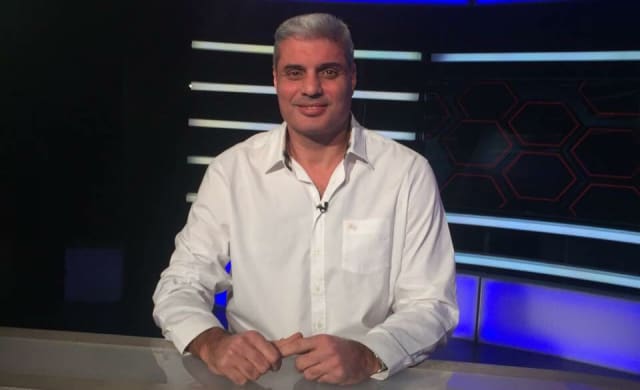El Hajj: Regular national team games make it possible to reach Lebanese fans all over the world
BEIRUT (FIBA Basketball World Cup 2019) - Basketball is the most popular sport in a number of countries, but few can match the frenzy that engulfs Lebanese fans of the game on a regular basis.
BEIRUT (FIBA Basketball World Cup 2019) - Basketball is the most popular sport in a number of countries, but few can match the frenzy that engulfs Lebanese fans of the game on a regular basis.
This is a reality that Yasser El Hajj - the former Lebanon international and current manager of the country's national teams - is all too aware of. And this passion, he says, is a major factor in how FIBA's Competition System 2017+ will affect Lebanese basketball in the future.
Predictably enough, the feeling about the New Competition System in Lebanon is one of excitement, especially as it will allow Lebanese fans to see their heroes play on home soil against top flight competition more regularly.
"FIBA's New Competition System is very exciting because it allows fans to watch their national teams playing home games, and it gives more chance for the national teams to qualify to the World Cup."Yasser El Hajj
The 46-year-old also recognizes other benefits that come with the new system, most notably its effect on the younger generation who are passionate about playing basketball, the country's numerous coaches and even the nation's economic standing.
"There are also developmental benefits to basketball as a sport because the New Competition System will encourage youth to play more and attract more fans to the game," he explained. "It will also oblige national coaches to improve their level in order to qualify to be on the national team staff. And financially it will boost the country as it will attract more foreign fans to come and watch their own national teams."

Yasser El Hajj represented Lebanon over the course of 17 years and captained the team that finished runners-up at the FIBA Asia Cup 2001
As part of FIBA's Competition System 2017+, 16 national teams from across Asia and Oceania will participate in the FIBA Basketball World Cup 2019 Qualifiers. These teams will play home and away games during six windows to determine the top seven teams joining hosts China as Asia/Oceania's representatives at the first-ever 32-team FIBA Basketball World Cup taking place from August 31-September 15 2019.
On the matter of hosting the FIBA Asia Cup 2017 and future home games, El Hajj is confident in the capabilities and resources of the Lebanese Basketball Federation (FLB) and the Lebanese government.
"We will be successful by having good coordination between the Ministry of Youth & Sports and other related governmental parties," he declared. "The FLB should also have good planning and qualified people to deliver the games according to FIBA standards, and hosting the FIBA Asia Cup in August will help us gauge how well we can organize such big events."
It also goes without saying that El Hajj views the New Competition System as a massively beneficial undertaking for a country like Lebanon, where basketball is like a religion. He admits the challenges of catering to all Lebanese basketball fans living in different parts of the world, but knows that these are some of the best basketball fans around the globe and that they deserve to see the Cedars in action.
"Lebanon is considered a basketball frenzy nation because it's our number one sport and is very popular," he noted. "It's a challenge for us to attract the 12 million Lebanese living abroad to follow the national team both for the home and away games, but these fans have never really got a taste of watching their national team play at home."
For this dream to materialize, El Hajj - who is also the chairman of the national teams committee - is banking on public and government support to back the efforts of the FLB. He is convinced it will take nothing short of complete collaboration to move forward successfully. Seamless communication with the fans, the government, corporations and all stakeholders will be crucial.
"FLB's biggest challenge right now is to provide funds to properly prepare the national team, provide venues that meet FIBA's requirements and make sure that visiting teams are comfortable and properly accommodated in our country," he said. "We need to have a good marketing and communication plan to help us promote and sell FIBA's new system to the public, fans, stakeholders and sponsors."
Recalling his own experience as a member of Lebanon's golden generation at the dawn of the 21st century, El Hajj admits that the current generation of Cedars are fortunate in some ways, but, at the same time, he is also hoping that the younger players will return the glory days back to Lebanon.
"FIBA's New Competition System is very exciting because it allows fans to watch their national teams playing home games, and it gives more chance for the national teams to qualify to the World Cup."
FIBA
